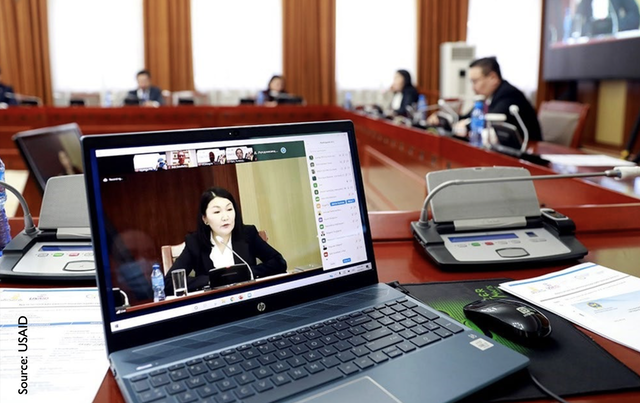
Why Governments Deploy ICT4D Projects
Governments use digital services to increase constituent services by improving efficiency, communication, accessibility, transparency, decision-making, and innovation. This strategic integration of e-Government technology helps governments enhance their operations and better serve their constituents.
Governments use e-government programs and digital services to increase constituent services for several reasons:
- Improved efficiency and productivity: E-government programs can streamline administrative processes, reduce paperwork, and save time and money, ultimately leading to more efficient and productive government operations.
- Better communication and accessibility: E-government programs facilitate better communication between governments and citizens, creating a more open market and a stronger economy. By digitizing government services and information, e-government can increase accessibility to public services and improve the overall customer experience.
- Increased transparency and accountability: E-government can improve government transparency by allowing the public to be informed about what the government is doing. This creates a more informed and engaged citizenry, which can lead to increased trust in government.
- Enhanced decision-making and resource allocation: By leveraging data and information collected through e-government programs, governments can make more informed decisions and allocate resources more effectively, resulting in better program outcomes and better support for constituents.
- Improved constituent experience: E-government programs can provide personalized experiences to constituents by collecting, unifying, and activating data to draw meaningful insights and provide proactive solutions to their needs.
- Promotion of innovation and collaboration: By utilizing e-government programs, governments can foster collaboration and promote innovation among stakeholders, leading to the development of more innovative and sustainable solutions.
How African Governments and Citizens Spar Over Digital Civic Spaces
Civic space remains open in only two of Africa’s 54 countries. The reduction in safe public spaces in which democratic debate can take place represents a breach...
New USAID Digital Ecosystem Framework for International Development
Digital technologies are becoming more accessible and have brought the promise of enormous benefits from digitalization. These tools and services can advance freedom...
5 Lessons Learned From Investing in Libraries for National Development
Beyond Access was the first major global attempt to connect the international development and public library worlds. Taking the form of a series of projects in...
Please Give Feedback on USAID Development Information Solution Pilot
USAID is creating a Development Information Solution (DIS) – an Agency-wide portfolio management system to produce high quality, readily available development...
Status of Government Policy Progress on Internet Connectivity Prices
COVID-19 digital response has laid bare the scale and consequences of the digital divide and underlined the urgent need to find solutions to digital inequality.
Governments...
Apply Now: $185,000 Startup Tech Innovation Grants in Uganda, Nigeria
UGX 640 Million UNICEF Uganda Innovation Fund
UNICEF Uganda has launched an Innovation Fund Challenge to leverage the disruptive power of technology and enhance...
5 Lessons Learned Using Digital Financial Services for COVID-19 Relief
Many countries have launched unprecedented relief packages to cushion the economic and social impact of the COVID-19 pandemic. Information is still limited on how...
3 Ways Aadhaar Data Reinforce Existing Digital Inequalities in India
Digital identity as a tool of governance promises the inclusion of the marginalised and undocumented populations. There are major efforts globally under programs...
New Report: How Korea Used ICT to Flatten the COVID-19 Curve
The world is facing an unprecedented economic, social and political crisis with the spread of COVID-19. The Republic of Korea is no exception. Korea had a surge...
Read Now: USAID’s First Ever Digital Development Strategy
Now more than ever, as the global development community works to deliver life-saving assistance and relay crucial information via COVID-19 Digital Response, the...











